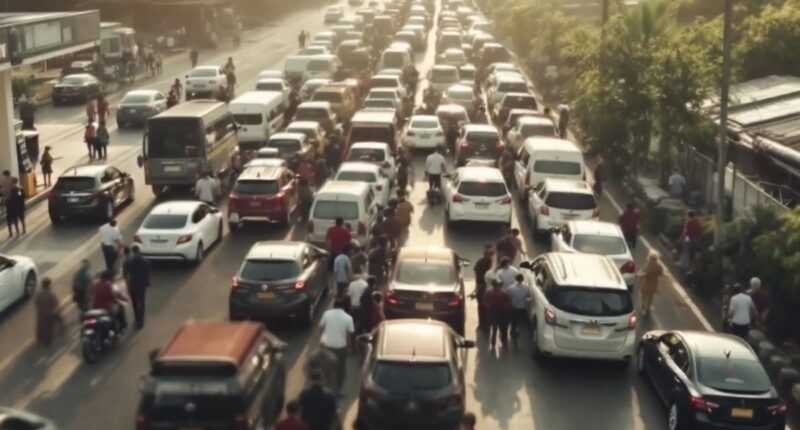The illegal sale of subsidized Malaysian petrol in southern Thailand continues to be a concern for authorities. Despite efforts to curb this activity, reports indicate that petrol is being smuggled across the border and sold at competitive prices, raising alarms about the effectiveness of current regulations.
Key Takeaways
- Malaysian subsidized petrol is being sold in southern Thailand.
- Authorities are monitoring the situation but face challenges in enforcement.
- The price of smuggled petrol is lower than the local Thai price.
Background
The issue of subsidized petrol from Malaysia being sold in Thailand has been an ongoing problem. The Malaysian government provides fuel subsidies to help its citizens cope with rising living costs. However, this has led to a black market where petrol is smuggled into neighboring countries, particularly Thailand, where fuel prices are higher.
Current Situation
According to the Perlis Ministry of Domestic Trade and Cost of Living (KPDN), there are still instances of Malaysian petrol being sold in southern Thailand, albeit in isolated cases. The director of KPDN Perlis, Hasbullah Abd Rashid, confirmed that while these cases are not widespread, they are being monitored closely.
- Locations of Sale: Reports indicate that petrol is being sold in various locations, including roadside stalls and small shops, often in bottles.
- Price Comparison: The smuggled petrol is sold for approximately 30 to 35 baht per liter, which is cheaper than the local Thai price of about 35.45 baht per liter.
Enforcement Challenges
Despite the ongoing monitoring, authorities face significant challenges in detecting and preventing the smuggling of subsidized petrol. Hasbullah noted that operations at commercial petrol stations near the border have not revealed any repeated purchases by local vehicles, indicating that the smuggling may be more covert.
- Static Operations: Enforcement agencies have been deployed to monitor petrol stations, but the nature of the smuggling makes it difficult to catch offenders.
- Community Involvement: Local petrol station owners are reportedly cooperating with authorities to prevent illegal sales.
Government Response
In response to the ongoing issue, KPDN has ramped up its efforts to control the outflow of subsidized goods, including petrol. The ministry has implemented several measures to combat smuggling, including:
- Increased inspections at border entry points.
- Collaboration with the Royal Malaysia Police (PDRM) to monitor suspicious vehicles.
- Regular checks at petrol stations across Perlis and surrounding areas.
Conclusion
The sale of subsidized Malaysian petrol in Thailand highlights the complexities of managing fuel subsidies and border control. While authorities are taking steps to address the issue, the persistent smuggling activities indicate that more robust measures may be necessary to protect the integrity of the subsidy program and ensure that it benefits the intended recipients. As the situation evolves, continued vigilance and cooperation between agencies will be crucial in tackling this ongoing challenge.

